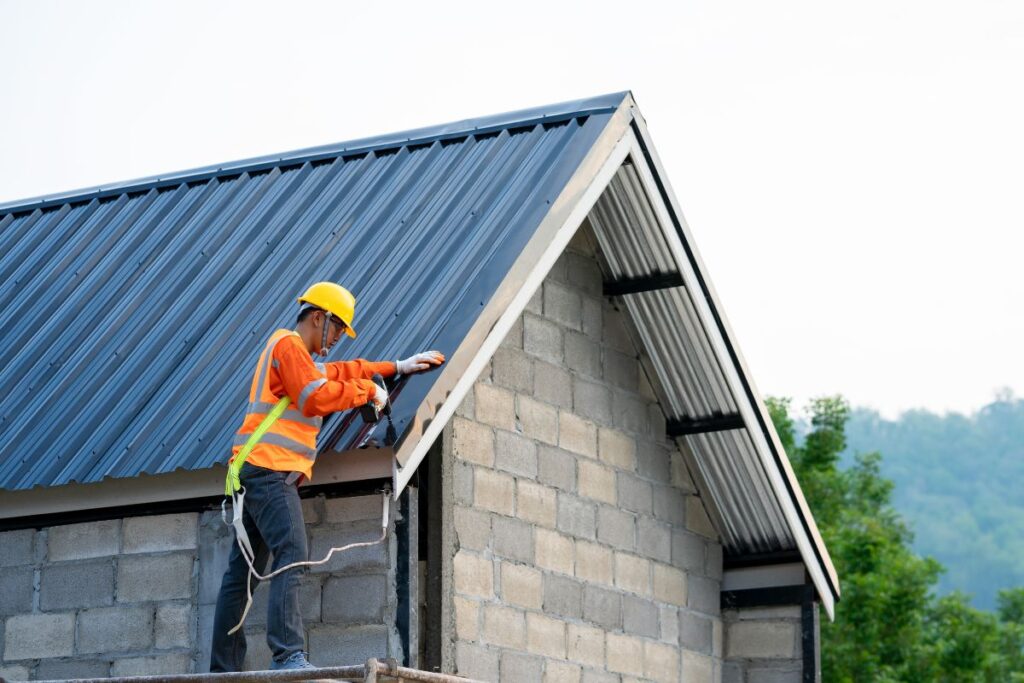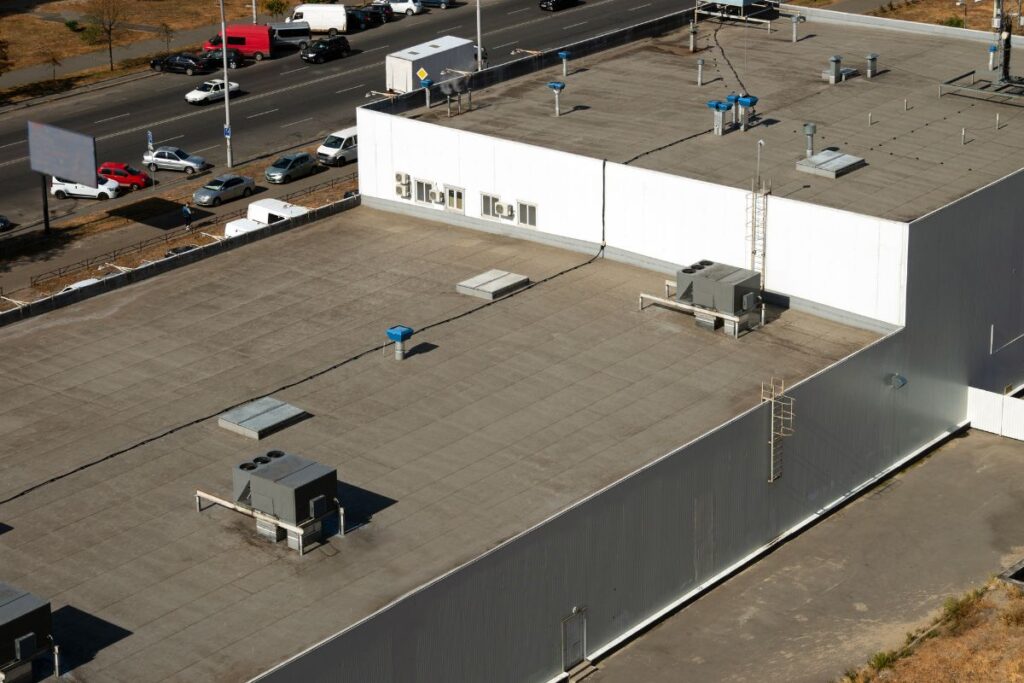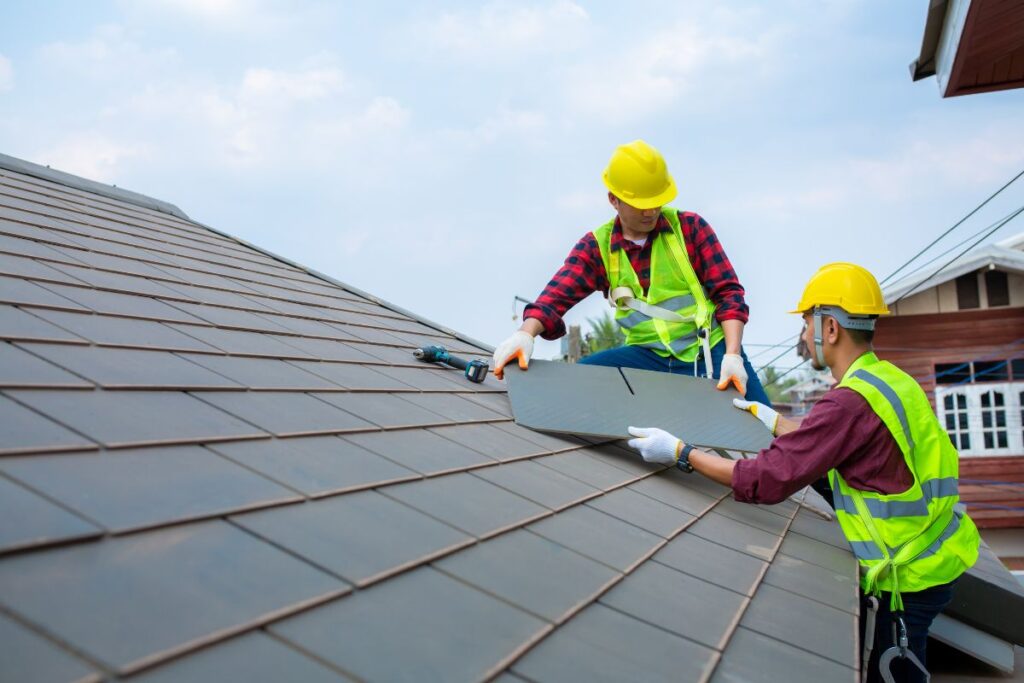For businesses looking to reduce energy consumption, the right roofing system can make a significant difference. Different types of commercial roofing offer varying degrees of energy efficiency, based on their heat absorption, insulating properties, and durability. Here’s how to evaluate the energy efficiency in various commercial roofing options:
- Reflective Properties
Reflective or “cool” roofs are designed to reflect more sunlight and absorb less heat than a standard roof. They are typically lighter in color and coated with a highly reflective paint, sheet covering, or tiles. By reflecting more sunlight, these roofs keep buildings cooler and reduce the need for air conditioning, thereby saving energy.
- Insulation
The level of insulation a roofing material provides significantly affects its energy efficiency. The higher the insulation value (R-value), the less heat or cold it allows to pass through. For example, spray polyurethane foam (SPF) roofing systems offer excellent insulation and can result in substantial energy savings.
- Durability and Life Span
The durability and lifespan of a roofing system also contribute to its energy efficiency. Materials that are long-lasting and require less frequent replacement mean less energy is used in manufacturing and installing new materials. Metal roofing, for example, is known for its durability and longevity.
- Solar Ready
Some commercial roofing materials are designed to support the installation of solar panels, making it easier for businesses to harness solar energy and further reduce their energy consumption.
- egional Climate Considerations
Finally, the climate in which your business operates should influence your choice of roofing. In hot climates, reflective roofing can help reduce cooling costs. In colder climates, roofing with high insulation values can help keep heating costs down.
When evaluating commercial roofing options, it’s crucial to consider the initial cost versus potential long-term energy savings. Working with a knowledgeable commercial roofing contractor can help you make the right choice for your business, climate, and budget.


